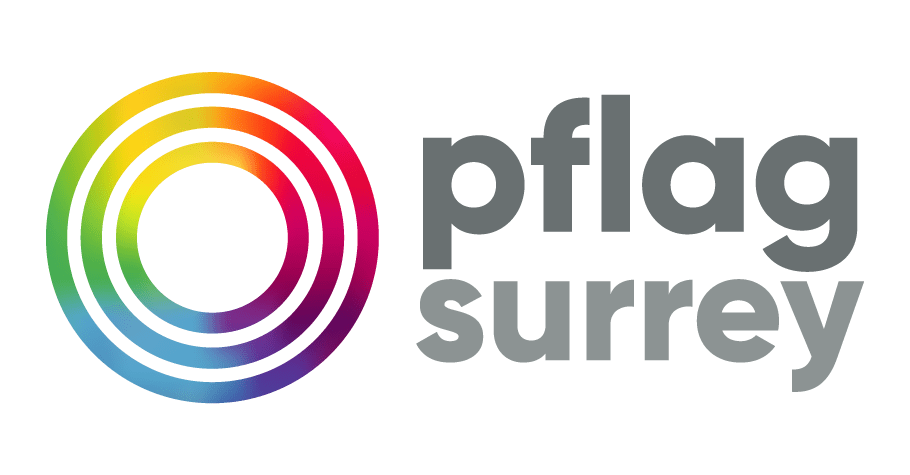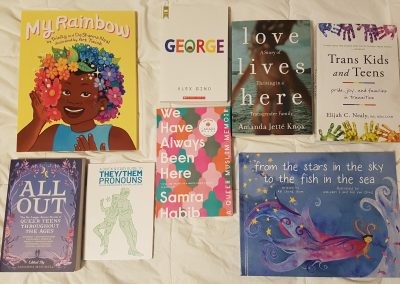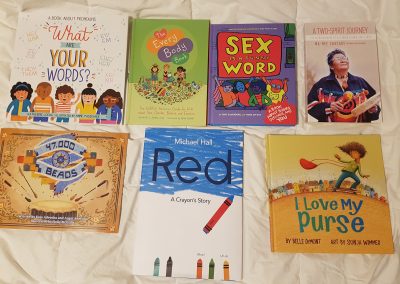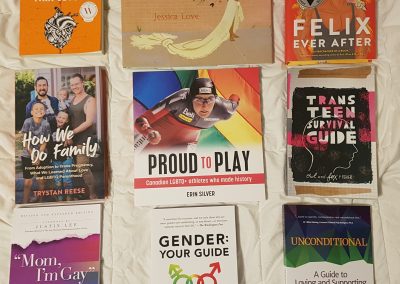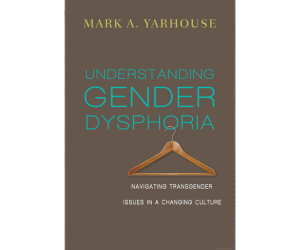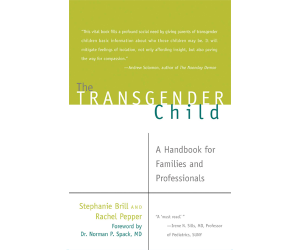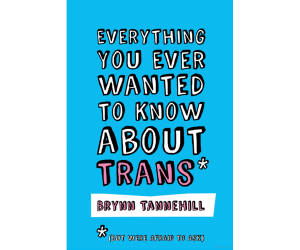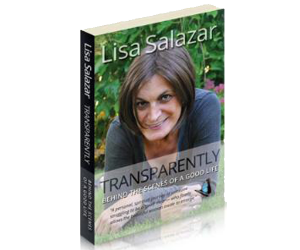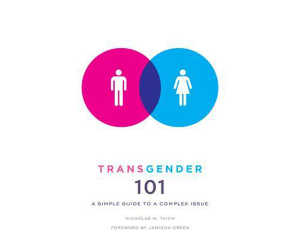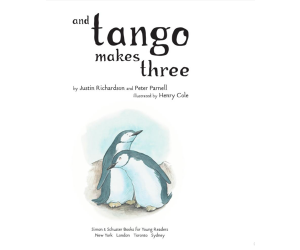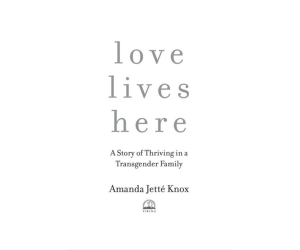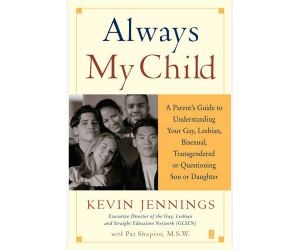Resources
We Are Here to Help
We are Supportive Parents, Families, Friends and Allies of the 2SLGBTQ+ Community.
Keep scrolling down for more helpful links and downloadable printable resources.
2SLGBTQ+ Crisis Phone Lines:
24 HOUR CRISIS LINES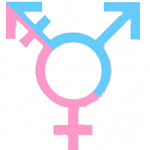
-
- Greater Vancouver: 604-872-3311
- Howe Sound & Sunshine Coast: 1-866-661-3311
- TTY: 1-866-872-0113
- Mental Health Support: 310-6789
- 1-800-SUICIDE: 1-800-784-2433
- Online Service for Youth: Youth in BC
If you or someone you know needs help, call one of the numbers below:
-
- 9-1-1 if you are in an emergency.
- 9-8-8 Suicide Crisis Hot Line
- 1-800-SUICIDE: 1-800-784-2433 if you are considering suicide or are concerned about someone who may be.
- 310 Mental Health Support: 310-6789 (no area code needed) for emotional support, information and resources specific to mental health.
- Kid’s Help Phone: 1-800-668-6868 to speak to a professional counsellor, 24 hours a day.
- Alcohol & Drug Information and Referral Service: 1-800-663-1441 (toll-free in B.C.) or 604-660-9382 (in the Lower Mainland) to find resources and support.
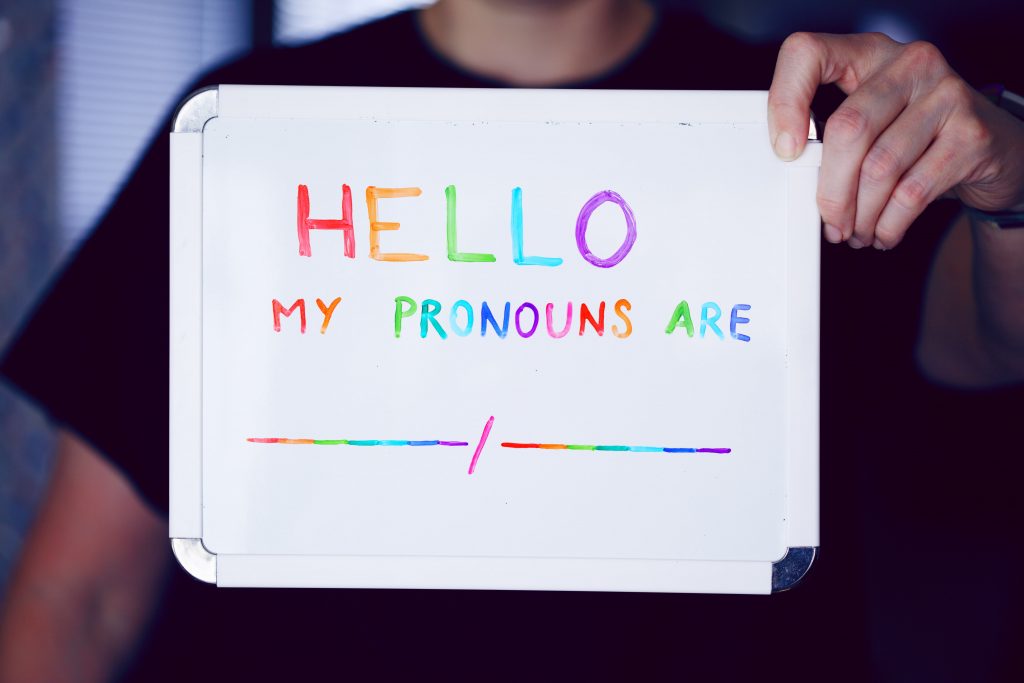
Alphabetical Pdf Resources
Coming Out Handbook(Trevor Project)(USA)
Developing Inclusive and Affirming Care for LGBTQ2-Seniors(VanIsland Health)
Discussing Trans and Gender Diverse People(Ontario Health)
Families in Transition(Toronto Health)
Gender Spectrum for Educators (BC Educators)
Guide 2SLGBTQ+-Older-Adult-Virtual-Social-Groups(Canada)
Guide to Being an Ally to Transgender and Nonbinary Youth(Trevor Project USA)
Guide to be a Trans Ally(PFLAG National)
Health in Focus Transition Related Surgery Care(Ontario Health)
Inclusive Curriculum Guide for Web (England Educators)
Invisible Majority the Disparities Facing Bisexual People and How to Remedy(USA)
Out Proud- I Think I Might be a Lesbian, Now What to Do(USA)
Let Me Be Me Conversion therapyinfo(Canada)
Primary Care Toolkit (Trans Care BC)
Questions to Be a Better Ally for Bisexuals(PFLAG National)
Ready Set Respect K-7(California)
Safe & Inclusive Enviroments (Surrey Schools BC)
SOGI+123KidsHaveQuestions(BC Educators)
Safety in Relationships Same Gender (Qmunity)(BC)
Trans Related Surgery-FAQ_Accessibility(Ontario)
Transinclusion Policy Guide Sport (Canada)
BC Children's Hospital Gender Resources
BC Children’s Hospital Gender Resources
The Gender Clinic provides treatment with puberty blockers and/or gender-affirming hormones for transgender and gender-questioning youth. We accept referrals up to the patient’s 17th birthday.
Understandings of gender continually evolve. In the course of a person’s life, the interests, activities clothing and professions that are considered the domain of one gender or another evolve in ways both small and large.
Books with 2SLGBTQ+ Content
Surrey Public Library LGBTQ2 Books for All.
Pride 2019: LGBTQ2IA+ Adult Non-Fiction
Pride 2019: LGBTQ2IA+ Teen Non-Fiction
Pride 2019: LGBTQ2IA+ Children’s Non-Fiction and Information Books
LGBTQ2 Books Suggested By Our Families
Transgender Teen: A Handbook for Parents and Professionals Supporting Transgender and Non-Binary Teens Paperback
The Transgender Child: A Handbook for Families and Professionals
Transgender 101: A Simple Guide to a Complex Issue
Transparently: Behind the Scenes of a Good Life
Always My Child: A Parent’s Guide to Understanding Your Gay, Lesbian, Bisexual, Transgendered, or Questioning Son or Daughter
And Tango Makes Three
Everything You Ever Wanted to Know about Trans (But Were Afraid to Ask)
Understanding Gender Dysphoria: Navigating Transgender Issues in a Changing Culture
Love Lives Here: A Story of Thriving in a Transgender Family
Community Support
a weekly social connection group for LGBTQ2S+ youth hosted at the South Surrey/White Rock Youth Space. Wednesdays 3:30pm – 6;30pm. youth 12+. Rainbow Connection Junior for LGBTQS+ 10 to 12 years of age, 2nd Wednesday of the month 3:30pm – 5:00pm. Youth Space of South Surrey 1845 – 154th st. 778-545-9188
The Diversity and Emotional Wellness Centre provides a caring, ethical, professional therapeutic environment for your emotional wellness.
We specialize in a number of clinical areas, such as: academics, anxiety, depression, relationships, and vocational development. Specialty assessments include: autism, psycho-educational, ADHD, gender re-assignment, and psycho-diagnostic assessment. Each of our licensed professionals also has his or her own speciality, such as child and youth, diversity, and LGBT issues. We also provide workshops on a variety of clinical issues.
All Nations Youth Safe House: Located in Surrey.
Safe house with 6 beds and meals for at-risk, self referred youth ages 16 to 18 of all nations. ANYSH is a 7-day emergency stay, with the possibility of extension based on weekly review. Each resident is assigned a key worker who assists the youth in developing an individualized service plan of daily goals to secure housing. 8 Call: 604-584-2625
Surrey: Youth 4 A change https://www.youth4achange.net/
Y4AC is involved in a vast array of community engagement initiatives with LGBTQA2SI+ youth in Surrey, BC and beyond. 12 years to 20years. Providing outreach workshops and education on LGBTQ issues. Monday nights at Newton Youth Resource Centre, King George Blvd and 76th Ave, Surrey. 6:00-8:30 pm. Contact Sylvie Traphan at sylviatraphan@yahoo.ca Tel. 604-356-0231.
search LGBT and they offer stories and provide resources for families with LGBTQ+ members https://www.bccf.ca/
PCRS Surrey, https://pcrs.ca/youth-hubs/
(PCRS) has been providing social services for over 39 years across BC, in education, employment, housing, substance use, mental health, and youth and family support
Alexander House https://www.alexhouse.net/
We offer a youth drop-in space, one-to-one and group support and engage in outreach further connecting youth and families to their local communities. We believe creating a sense of belonging amongst youth and their families fosters healthy and resilient communities.
Surrey Youth Alliance https://surreyyouth.wordpress.com/
is a drop-in and support group for LGBTQ+ between the ages of 14 and 21 in the Fraser Valley and surrounding area. Wednesday:
Here to Help information, learn new skills, and connect with key resources in BC. Explore strategies to help you take care of your mental health and use substances in healthier ways, find the information you need to manage mental health and substance use problems, and learn how you can support a loved one.
QMUNITY — BC’s Queer, Trans, and Two-Spirit Resource Centre
trans, and Two-Spirit folks looking for a sense of community come together to meet, guide, and support each other.
is a non-profit society for LGBTQ+ South Asians and their friends, families and allies in Metro Vancouver, B.C.
about sexual diversity and identity, and where to get help if you want to come out or need advice.
program aims to bridge this gap in understanding the unique needs of LGBTQIA2+ newcomers and to provide support by raising awareness and offering support groups.
Mosaic BC Gender-Based Enhanced Settlement
Program (GESP) is a unique program designed to support newcomer families.
acknowledges and respects diversity in the expression of gender and sexuality among youth.
The Langley Youth Hub https://www.langleyyouthhub.com/
The Hub provides opportunities to meet the basic needs of youth such as food, showers, laundry, and toiletries. We also provide services such as street outreach and outreach in local school, employment and housing support- all of which are imperative in increasing the overall well-being of youth.,6275 203 St, Langley, BC V3A 5E6
we recognize the importance of connecting with other young people who can relate to your experiences. Connecting virtually can be especially helpful for young people who are feeling isolated or unsure of how to meet others who share their identity. Queer Café, our weekly virtual drop-in for LGBTQIA and Two-Spirit young people across BC, is one way of making those connections in a casual, safe, and accepting setting. Queer Café is a peer support group, which means it’s run by and for LGBTQIA and Two-Spirit young people, not counsellors or social workers. The professionals who lead the group are called peer supporters, meaning we’re trained service providers who also have experience of some of the challenges you might have, like mental health or substance use concerns. In the case of the peer supporters who run Queer Café, that means we also identify as LGBTQIA and Two-Spirit!
Foundry Virtual, https://foundrybc.ca/virtual/
Young people aged 12-24 and their caregivers can drop-in or schedule a virtual counselling appointment, find peer support, access primary care, get support with employment, access groups & workshops, or browse our library of tools and resources.
is the leading National Organization providing crisis intervention and suicide prevention services to lesbian, gay, bisexual, transgender, queer & questioning (LGBTQ2) young people under 25.
A peer support line and resource database for LGBTQ2S youth in British Columbia, Canada.Lines Open Saturday-Wednesday, 6:00 PM – 9:00 PM PST.
1-855-956-1777
Founded in 2000,is a Vancouver based community group that supporters people seeking refugee protection in Canada because of persecution based on sexual orientation, gender identity, gender expression (SOGIE) or HIV status.
is a non-profit society that aims to strengthen the health and well-being of gay men.
Canada’s leading organization for 2SLGBTQI people and issues. We improve and save lives through research, education, awareness, and by advocating for human rights and equality in Canada and around the world. Our work helps create societies and systems that reflect the universal truth that all persons are equal and none is other.
an online community for LGBTQ+ Teens
Campus, Lgbtq2 School & Community Support
SFU Out On Compass http://www.sfu.ca/campuses/surrey.html
The Simon Fraser Student Society is a student-led organization that represents and advocates for the interests of the 25,000+ undergraduate students at SFU. We are your not-for-profit support network and voice at SFU and provide services and support to make your student life better.
SFU Gender, Sexuality, and Women’s Studies
https://www.sfu.ca/gsws/community/lgbtq-special-initiatives/archive.html
Learn about how social movements and political activism can change the world in this interdisciplinary field of study. The Department of Gender, Sexuality, and Women’s Studies is committed to cultivating innovation, intellectual freedom, social justice activism, diversity, and transformative resistance to inequality.
Kwantlen Polytechnic University https://www.kpu.ca/
(KPU) Surrey Campus, Lgbtq2 School & Community Support
https://www.kpu.ca/pride/initiatives
The Pride Advocacy Group initiatives are a demonstration of KPU’s commitment to diversity and inclusion: to creating a safer, welcoming, supportive environment for students, employees, and community members of diverse sexual and gender identities.
https://www.kpu.ca/sexual-health
We want to support our students navigating these issues and provide information to make healthy informed choices
(TWU) Langley Campus, Lgbtq2 School & Community Support
University of British Columbia https://www.ubc.ca/
UBC Pride
At UBC, we’re proud of our diverse students, faculty and staff. Explore the many Pride activities at UBC, connect with your community, help create positive space on and off campus and stand up for sexual orientation and gender identity (SOGI) diversity.
UBC Center for Gender & Sexual Health Equity
LGBTQ Special Initiatives
UBC Student Services
https://students.ubc.ca/ubclife/were-queer-were-here-queer-trans-visibility-ubc
Here at UBC, we strive to build an inclusive community that welcomes people of all genders and sexual identities.
B.C.I.T. https://www.bcit.ca
https://www.bcit.ca/respect/pride-at-bcit/
The Respect, Diversity, and Inclusion (RDI) department helps BCIT foster a respectful and inclusive working and learning environment by creating awareness and belonging through education, events, and training.
Douglas College https://www.douglascollege.ca/
https://www.thedsu.ca/our-club-collective/dsu-pride-collective/
To provide a safe and inclusive space for members of the LGBTQ2S+ community. To hold fun, safe and inclusive events for members. To provide information and materials regardingLGBTQ2S+ students on campus to make friends, utilize services specific to their needs. To advocate for LGBTQ2S+ students at Douglas College and the greater community.
https://guides.douglascollege.ca/LGBTQ/contacts
https://www.douglascollege.ca/news-events/2023/jun/pride-season-2023-begins-across-canada
LGBTQ2+ students and allies are invited to connect with the DSU Pride Collective.
The SOGI-Inclusive Education Resource Guide is a set of recommendations by educators who have been actively supporting students of all sexual orientations and gender identities for years.
Counsellor Information
………………………………………………………………………………………………………………………………………………………………………………………………………
Alexina Davis (owner and operator of Songbird Therapy) is a Registered Clinical Counsellor (RCC) and Certified Music Therapist (MTA).
At Songbird Therapy, my aim is to create a space where you can show up exactly as you are. In nature, nests symbolize safety, rest and renewal, and my office, “The Nest,” offers a grounded place to explore your thoughts, feelings and challenges. I prioritize nourishment (of the body-heart-mind-spirit), comfort, expression and growth, and I offer sex-positive, trauma-informed and 2SLGBTQIA+-affirming care. I provide relational therapy through the use of various modalities, including somatic, trauma and music-informed approaches to support clients through life transitions, grief, relationships struggles and identity challenges. I offer virtual sessions to residents of BC (and other select provinces) and in-person sessions in Port Coquitlam.
If you have any questions or would like to book a 15 min free consult, please go to www.songbirdtherapy.ca or email me at: info.songbirdtherapy@gmail.com
……………………………………………………………………………………………………………………………………………………………………………………………………………………………………………………………………………………………………………….
I am a social worker and health, wellness, and transformational coach with over 15 years experience supporting LGBTQIA+ people and their families. My aim is to create safe, supportive, and inclusive spaces for them to heal, grow and connect to their authentic selves and each other.
Three core areas I work are:
- Supporting parents of LGBTQI2S+ individuals to better understand their own and their child’s experiences and emotions surrounding their child’s gender identity and sexuality, without experiencing unnecessary confusion, fear, or overwhelm, to foster the loving, supportive, deep relationship they desire.
- Supporting 2SLGBTQIA+ adults (18+) to heal, grow, thrive, and access their inner strength, freeing their authentic selves, so they can live a joyful, fulfilled life.
- I provide workshops, webinars, and courses for professionals, creating opportunities for them to improve their confidence and capacity to provide safe inclusive services for 2SLGBTQIA+ people and their families.
My services are offered virtually via – 1:1 sessions, short DIY courses and supported group and individual programs.
For more information, please go to my website and/or book a free consult call.
Tracy Whitmore
Pronouns: She/Her
RSW Transformational Coach
Author: It’s About You Too: Reducing the Overwhelm for Parents of LGBTQ+ Kids
M: 778 776 1447 (Canada)
Book a free consult call: https://calendly.com/indigojourney/get-to-know-you
-…………………………………………………………………………………………………………………………………………………………………………………………………….
I have worked with the LGBTQ population. I have expertise in Trauma Counselling.
Unfortunately, the LGBTQ population went through traumas throughout their life
which makes this population and myself a great fit for each other.
I want to highlight that –
- I work with adults, older than 18.
- Currently offering virtual counselling (phone and video).
- Please feel free to ask if you have any additional questions.
Warm Regards,
Rhea Jacobs
MCP, RCC, EMDR Psychotherapist, Certified Clinical Trauma Professional
FIREFOX COUNSELLING
South Surrey
Phone: +1-604-377-6033
Email: info@rheacounselling.com
Website: www.rheacounselling.com
———————————————————————————————————————————————————————————————-
I have worked with LGBTQ, from individuals questioning, coming to terms to individuals who
know to individuals going through transitions.
As well as dealing with trauma and bullying, homophobia & internalized homophobia, etc.
Warmest regards,
Vermonte Wong (She/Her), MC, RCC
Just Live Counselling Services
Newton Surrey
T: 778-775-3027
E: info@justlivecounselling.com
W: www.justlivecounselling.com
———————————————————————————————————————————————————–
We have experience supporting youth as they come out as gay, lesbian, bi and pan sexual. We have also supported
and advocated for youth as they transition whether that’s with their family GP, psychiatrist and or school supports.
We are narrative based and queer theory has been a very important influence theoretically and in practice.
Also given that my personal specialty is in supporting neurodivergent youth, there has been a lot of overlap in
gender nonconforming expressions and trans identities.
If you have any more questions and or would like to chat please feel free to set up a time.
kindly, Akeiko
she/her
You can contact me directly at akeiko@archescounselling.com
Team Arches
#210-1548 Johnston Rd
White Rock, BC V4B 2Z8
————————————————————————————————————————-
Crossroads Collective
#211 & #214 – 20226 Fraser Highway
Langley, BC V3A 4E6
We would be happy to support your initiative and work as a specialization in this area.
We also offer heavily discounted rates for those who wish to see our interns or are in need due to financial reasons.
Thanks
Lisa Moore, Masters Counselling Psychology, RCC, CCC
Personal Email: lisa@crossroadscollective.ca
——————————————————————————————————————————————————————————————
Crossroads Collective
#211 & #214 – 20226 Fraser Highway
Langley, BC V3A 4E6
I’d be happy to be listed as one of your resources. I am a gay cis male (he/him) counsellor who works with adults age 18 and older.
I’m not an expert in trans issues, but I have taken training from TransCare BC to increase my therapeutic competency with trans clients.
I currently work with a variety of clients, including members of our trans, lesbian, gay, and inter-sex community and their allies.
I provide individual, couples, and poly relationship counselling.
My work phone is: 778-828-1692
Email: dmportesi@gmail.com
And my websites are…
And
https://pacificwellnesscounselling.com/david-portesi
Thanks again and take care!
Sincerely,
Dave Portesi
——————————————————————————————————————————————————————————–
To answer your question, I do work with LGBTQ2S+ youth, adults, and their families.
In my other job through community services in the fraser valley,
I primarily see a lot of kiddos within this population, especially transgender youth who are looking for support
and guidance on transitioning, who have recently transitioned,
and/or are not able to speak to their families about their identity, and may have experienced abuse or trauma.
My private practice in Surrey is definitely a safe space for this population to speak freely and be their authentic selves without judgement.
You are more than welcome to list my practice as a resource. I hope this helps.
Kindly,
Alannah McIntee (she/her), MCP, RCC,CCC )
South Surrey
—————————————————————————————————————————————————
I’m happy to hear about your Pflag Surrey group. I moved to White Rock from Edmonton three years ago
and was not aware of your organization.
I see that it’s new. I have experience working with lesbian, gay, bi, trans, queer and two spirited people in
individual therapy and with their partners. I’ve done a little family work as well.
I’d be happy to have you put my information on your Web Site. I use an experiential and attachment orientation in my approach.
If you have any further questions you can contact me again or consult my website for more detail.
Warmly,
Penney
Penney Hartsen MSW RCSW (she/her/hers)
Registered Clinical Social Worker
Certified Emotionally Focused Therapist and Supervisor
White Rock
——————————————————————————————————————————————————–
1) My experience with LGBTQ:
– I helped run a queer friendly all-ages open mic geared towards youth and elders in the queer community
(Launch Open Mic, 2018-2019)
– I run the SOGI (sexual orientation and gender identity) club at the school where I work as a counsellor.
– I see many queer, gay, lesbian, bi, trans, non-binary clients in my work through private practice
2) You can definitely put my contact info on your website, however, I’m currently not taking on new clients.
I do always email people back though and I have a waitlist. So if you put me on the site,
feel free to add a caveat of “might not be accepting clients,
if not you can be placed on a waitlist” or something like that.
Any other questions, feel free to email me.
Thanks for the awesome work you are doing! This is so great!
Joelle Scintilla (Prevost)
South Surrey
————————————————————————————————————————————————————————————————–
In response to your questions, I am a Queer Counsellor and I have had the privilege to work exclusively alongside those in our community for the last seven years.
From a clinical standpoint, I have supported clients who are questioning, coming out, healing from religious or relationship trauma, and more. Age of clients ranged from 13 to 60+.
With the exception of Two-Spirited and Intersex individuals, I have experience with those who who identify under the Lesbian, Gay, Bisexual, Transgender, Queer, Asexual, and Questioning umbrella.
It would be my honour to be included on the list of LGBTQ2S+ Counsellors on the Pflag Surrey website.
If you have any questions, please don’t hesitate to reach out.
Warmest regards,
Bonnie
Bonnie Chi, MA, RCC, CCC
Pronouns: They/Them, She/Her
Tel: 604.781.6643
White Rock
http://www.ybonniechi.com
————————————————————————————————————————————————————————————-
Sim (she/her) is a social service worker with training in counselling, and Vermonte (she/her) is a Registered Clinical Counsellor.
They both have experience with L, G, B, Q clients, with less experience with transgender clients, though are very willing
to learn and expand. They are both BIPOC professionals. Sim also runs an anonymous and affordable queer support group
(Life Support) through Dragonfly Wellness Centre.
I have worked with a handful of transgender youth/young adults and their families, but do not have formal training in this area.
They insisted on working with me as we had a shared cultural background, and they were not getting their cultural concerns
and perspectives addressed with therapists they had tried.
We would be honoured to be on your website as a resource to the community: www.dragonflywellnesscentre.ca is our
wellness site, and www.drsaira.ca is my own professional site.
I will let you continue the conversation with Vermonte and Sim.
Warmly,
Dr. Saira (she/her)
Surrey
www.dragonflywellnesscentre.ca
————————————————————————————————————————————————————————————————-
Thank you for contacting me and inquiring about my services and experience working with folks from the LGBQ2+ community.
From time to time over the past 20 years I have had clients who identify as LGBQ2+.
For example a gay couple who were foster parents, a Mom whose son was changing genders,
a bi polyamouras couple, lesbian teens and couples as well as gay individuals.
If you’d like to add me to your referral list that would be much appreciated.
Good luck to you in providing a needed service.
Warmly,
Carol Ateah, MA, RCC
Tsawwassen
carolateahcounsellingservices.com
———————————————————————————————————————————————————————————————————-
- Feel free to share foundrybc.ca/virtual as a safe LGBTQ+ virtual space on your website.
- All of our counsellors, nurse practitioners, and peer supporters are trained in supporting LGBTQ+ identifying individuals.
- We offer counselling and peer support for anyone between the ages of 12-24, in addition to their caregivers.
2) We currently run a group called Queer Café. You can read more about it - This group is facilitated by 2 individuals who identify as Queer and are a big part of the LGBTQ+ community.
- If you would like to share this group on your website, feel free to do so. I can also e-introduce you to the facilitators,
- if you would like to connect with them directly.
Kindly,
Sierra Turner
She, her hers (Pronouns)
Youth Peer Support Worker & Virtual Care Communications
Surrey
——————————————————————————————————————————————————————————————-
Good news for you is that the majority of my practice is actually working in partnership
with clients and families in the queer community, with a keen focus and experience with
the trans youth, adults, and families. You can read more about my experience within the
queer community here: https://lifesolutionsandcounselling.ca/about-2/
Be well and stay safe,
Katen Jolly
Social Worker (RSW, BSW, MSW)
L.I.F.E. Solutions and Counselling
Delta
—————————————————————————————————————–
Since 2018, we have delivered over 42,000 appointments both in-person and online, providing high-quality counselling to adults, youth, couples, and families. Our team comprises Registered Clinical Counsellors (RCCs) with the BC Association of Clinical Counsellors, many with 10-15+ years of experience. We are particularly skilled in supporting the 2SLGBTQ2+ community, addressing a wide range of issues, including identity exploration, coming out, gender transition, and the unique stressors faced by 2SLGBTQ2+ individuals and families. Our focus also includes depression, anxiety, trauma/PTSD, abuse, and life transitions.
We utilize evidence-based, trauma-informed modalities such as EMDR, CBT, and the Gottman Method to ensure that our clients receive personalized and compassionate care that is affirming and sensitive to the challenges faced by the 2SLGBTQ2+ community. As such, our counsellors have extensive experience supporting transgender youth, adults, and their families, alongside other 2SLGBTQ2+ identities.
For your website, our best method for contact is by submitting an intake form through our website or via email (info@vitalitycollective.ca) or phone (778-545-4310).
We have three convenient locations in Vancouver, Surrey, and Chilliwack, BC.
Regards
Vitality Collective Counselling Service
Resources
Gender Equity & 2SLGBTQ+ Resources
Moving Towards Queer and Trans* Competent Care for Seniors
Mapping Lesbian, Gay, Bisexual, Trans & Queer Migrant Needs in Surrey, BC
Shifting to Gender Inclusive Language
Gender Surgery Program-BC Vancouver Coastal Health Info Session FAQ
Gender Surgery Program BC, Questions & Answers
Facts and Myths About Anti-Homophobia Education
I Heart My Chest, A Chest Health Resource For Trans Folk
Parents and Family, English Version
QTBIPOC Youth Road Map Queer Glossary 2019
Same_Gender_Relationship_Safety
Safety in Relationships for Trans* Folk
Toolkit for Inclusive Municipalities in Canada and Beyond
Gender Identity Information
Gender identity is your internal and psychological sense of yourself as a woman, a man, both, in between or neither. Only you can determine your gender identity.
Sexual orientation is a term used to describe your pattern of emotional, romantic or sexual attraction. Sexual orientation may include attraction to the same gender (homosexuality), a gender different than your own (heterosexuality), both men and women (bisexuality), all genders (pansexual), or neither (asexuality).
For more information about gender identity and sexual orientation, including how to find support services in your area, visit Qmunity – BC’s Queer Resource Centre or Trans Care BC by calling 604-675-3647 or toll free 1-866-999-1514.
http://www.phsa.ca/transcarebc/care-support/transitioning/id-name-change
Resources BC Government Content Information
https://www2.gov.bc.ca/gov/content/gender-equity/resources
Canadian Gender Surgery Information
Canadian Surgery Info
Gender Surgeons in Canada
https://www.transhealthcare.org/canada/
Dr. Pierre Brassard
https://www.grsmontreal.com/en/surgeons/1-dr-pierre-brassard.html
https://www.drbrassard.com/en/about-us/
https://www.cmcmontreal.com/en/surgeons/dr-pierre-brassard/
Dr Cameron Bowman
https://surgery.med.ubc.ca/people/cbowman/
https://www.fairviewplasticsurgery.com/dr-bowman-cu-in-vancouver-office
https://chhrp.org/index.php/human-rights/advisors/dr-bowman/
Dr. Maud Belanger
https://www.grsmontreal.com/en/surgeons/2-dre-maud-belanger.html
https://www.drbrassard.com/en/about-us/dr-maud-belanger/
Dr. Eric Bensimon
https://www.facial-feminization-surgery.com/
https://www.facial-feminization-surgery.com/dr-eric-bensimon/
https://www.transhealthcare.org/eric-bensimon/
Provincial Health Services Authority
Trans Care BC
http://www.phsa.ca/transcarebc/about/who-we-are
http://www.phsa.ca/transcarebc/surgery
http://www.phsa.ca/our-services/programs-services/trans-care-bc
http://www.phsa.ca/transcarebc/surgery/how-to-get-surgery
http://www.phsa.ca/transcarebc/surgery/gen-affirming
Canadian Society of Plastic Surgeons
https://plasticsurgery.ca/procedures/gender-affirming-surgery/
The Gender Surgery Program B.C.
https://www.vch.ca/en/service/gender-surgery-program-bc
How Long it takes to get Gender Affirming Surgery across Canada
https://www.topsurgery.ca/blog/how-long-to-get-gender-affirming-surgery-canada
Steps to Get Surgery-Male to Female & Female to Male
Once you have decided you would like to have surgery, and which surgery you want, you will need to go through a few steps to access it.
2SLGBTQ+ Flags
These LGBTQ Flags represent the LGBTQ movement as a whole with Sexual Orientations, Gender Identities, Subcultures and Regional purposes.
Flags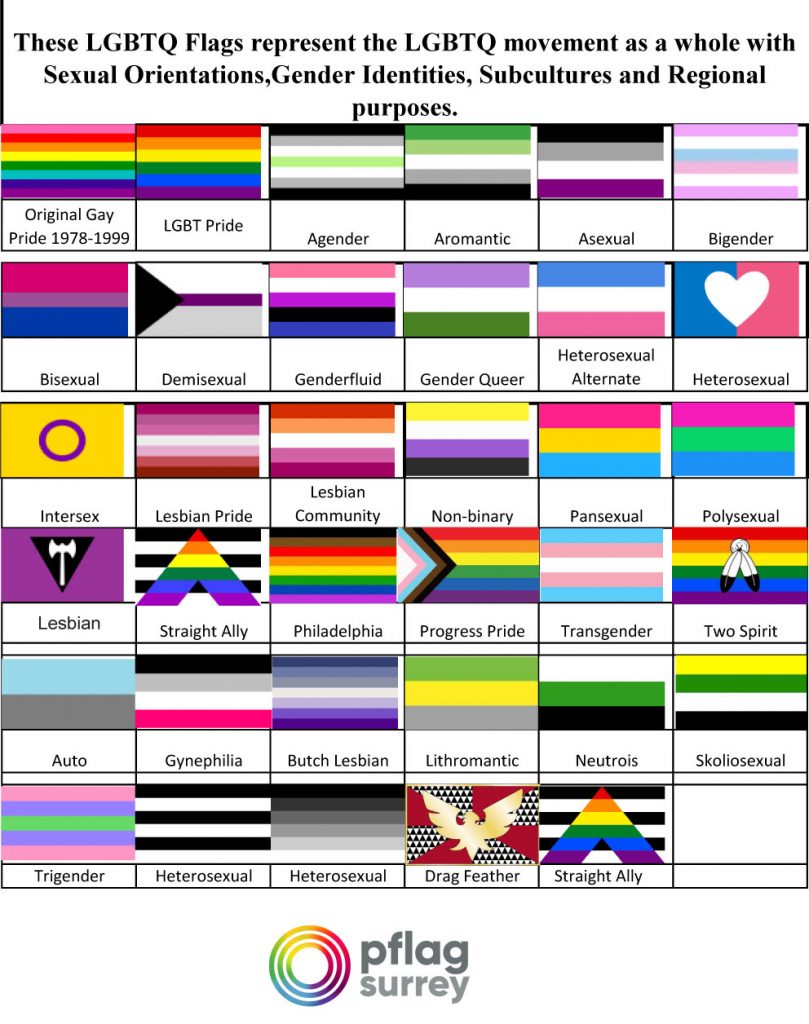
2SLGBTQ+ Symbols
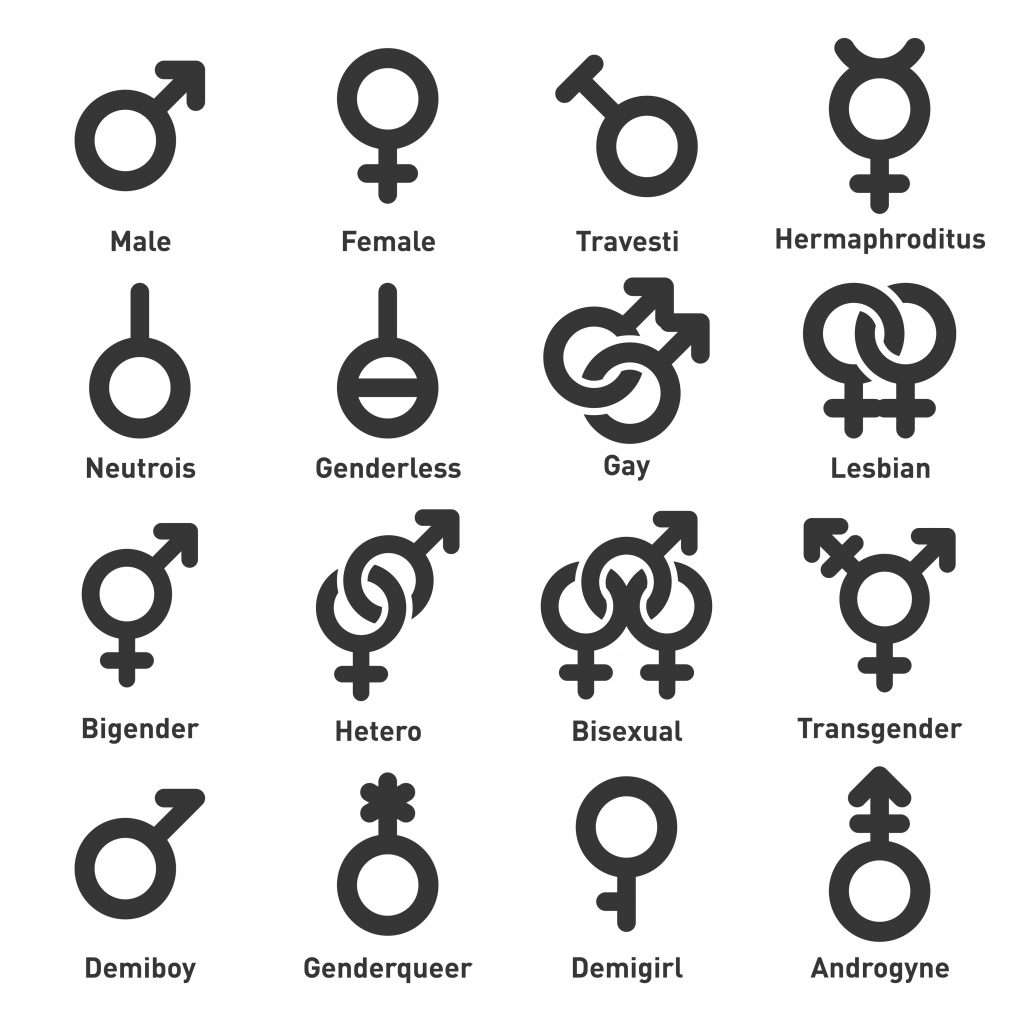 LGBTQ symbols
LGBTQ symbols
Links to Canadian 2SLGBTQ+ History
More Crisis Lines and Free Resources
COVID-19:
Managing COVID-19 Stress, Anxiety and Depression
https://www.camh.ca/en/health-info/mental-health-and-covid-19
Crisis:
Fraser Health Crisis Line — 24 hours a day
P: 604.584.5811
Suicide Crisis Line — 24 hours a day
P: 1-800-SUICIDE (784-2433)
Anxiety:
Mental Health and Substance Use:
Fraser Health Mental Health & Substance Use
Physical Health:
BC NurseLine — 24 hours a day
Call 8-1-1 toll-free in B.C. or for deaf and hearing-impaired, call 7-1-1.
Pride City Links and Festival Events
Terminology and Downloadable Printable Terminology pdf
AFAB—Acronym meaning “assigned female at birth.”
Agender—Someone who doesn’t identify with the idea or experience of having a gender.
Aliagender—A nonbinary gender identity that doesn’t fit into existing gender schemas or constructs.
AMAB—acronym meaning “assigned male at birth.”
Androgyne—Someone who has a gender presentation or identity that’s gender neutral, androgynous, or has both masculine and feminine characteristics.
Aporagender—Both an umbrella term and nonbinary gender identity that describes the experience of having a specific gender that’s different from male, female, or any combination of the two.
Bigender—This term describes someone who identifies with two distinct genders. Bigender indicates the number of gender identities someone has. It doesn’t indicate which genders someone identifies with or the level of identification they have with a particular gender (such as 50% male, 50% demigirl).
Binarism—Generally, binarism refers to the gender systems and schemas that are based on the existence of two opposing parts, such as male/female, man/woman, or masculine/feminine. More specifically, binarism is a type of sexism that erases ethnic or culture-specific nonbinary gender roles and identities.
Body dysphoria—Body dysphoria is different from body dysphoric disorder.
It refers to a specific type of gender dysphoria that manifests as distress or discomfort with aspects of the body. This may include anatomy, shape, size, chromosomes, secondary sex characteristics, or internal reproductive structures.
Boi—A term, primarily used in LGBTQIA+ communities, that typically describes someone who has a presentation, sexuality, or gender that’s considered “boyish.”
Butch—Primarily used in LGBTQIA+ communities, this term typically describes someone with a presentation, sexuality, or gender that’s considered masculine.
Butch doesn’t necessarily indicate the other terms that someone might use to describe their presentation, sexuality, or gender.
Cisgender—A term used to describe people who exclusively identify with their sex or gender assigned at birth.
Cisnormativity—The assumption that a person identifies with the sex or gender they were assigned at birth, or that having a cisgender gender identity is the norm.
Cissexism—A form of oppression that discriminates against those who aren’t cisgender.
Demiboy—This nonbinary gender identity describes someone who partially identifies as a boy, man, or masculine. The term demiboy tells us about someone’s gender identity, but doesn’t convey any information about the sex or gender assigned to someone at birth. A demiboy can identify as cisgender or trans.
Demigender—This umbrella term typically includes nonbinary gender identities and uses the prefix “demi-” to indicate the experience of having a partial identification or connection to a particular gender.
This may include:
- demigirl
- demiboy
- demienby
- demitrans
Demigirl—This nonbinary gender identity describes someone who partially identifies as a girl, woman, womxn, or feminine. The term demigirl tells us about someone’s gender identity, but doesn’t convey any information about the sex or gender assigned to someone at birth. A demigirl can also identify as cisgender or trans.
Dyadic—This describes people who have sex characteristics — such as chromosomes, hormones, internal organs, or anatomy — that can be easily categorized into the binary sex framework of male or female. Dyadic conveys information about someone’s sex characteristics but doesn’t indicate anything about their gender.
Feminine-of-center—This describes people who identify their gender as feminine or femme. Some feminine-of-center people also identify with the word woman, but others don’t. The term feminine-of-center tells you about someone’s gender identity, but doesn’t convey any information about the sex or gender assigned to them at birth.
Feminine-presenting—This describes people who have a gender expression or presentation that they or others categorize as feminine. Feminine-presenting is a term that captures the part of someone’s gender that’s shown externally, either through aspects of their style, appearance, physical traits, mannerisms, or body language. This term doesn’t necessarily indicate anything about the way someone identifies their gender or the gender or sex assigned to them at birth.
Femme—This is a label for a gender identity or expression that describes someone with a gender that is or leans towards feminine. Some femmes also identify as women, while many others don’t. Femme indicates the way someone experiences or expresses their gender, and doesn’t provide any information about the gender or sex assigned to them at birth.
Female-to-male (FTM)—This term and acronym is most commonly used to refer to trans males, trans men, and some transmasculine people who were assigned female at birth. It’s important to only use this term if someone prefers to be referred to this way, as some trans males, trans men, and transmasculine people use terms that don’t include or indicate the sex they were assigned at birth.
Gender apathetic—This term describes someone who doesn’t strongly identify with any gender or with any gender labels. Some gender apathetic people also use terms that indicate their relationship with the sex or gender assigned to them at birth — such as cis apathetic or trans apathetic — while others don’t. Generally, people who are gender apathetic display an attitude of flexibility, openness, and “not caring” about how gender identity or presentation is perceived and labeled by others.
Gender binary—Also known as gender binarism, this term refers to gender classification systems — whether cultural, legal, structural, or social — that organize gender or sex into two mutually exclusive categories such as male/female, man/woman, or masculine/feminine.
Gender dysphoria—This is both a medical diagnosis and informal term used to communicate challenging feelings or distress people experience in relation to gender. The medical diagnosis of gender dysphoria refers to a conflict between someone’s assigned sex (as male, female, or intersex) and the gender with which they identify. When used informally, gender dysphoria describes interactions, assumptions, physical traits, or body parts that don’t feel affirming or inclusive of someone’s expressed or experienced gender.
Gender expression—Gender expression is the way someone expresses gender through behavior, mannerisms, interests, physical characteristics, or appearance.
It’s often, but not always, described using terms such as masculine, feminine, neutral, androgynous, conforming, or nonconforming. The words used to describe someone’s gender expression are dependent upon social or cultural norms and stereotypes and may change over time.
Gender identity—This is the way someone experiences gender internally as part of their core sense of self. Gender identity can’t be assumed based on appearance, anatomy, social norms, or stereotypes. Gender identity isn’t determined by assigned gender or sex, and often develops or changes over time.
Gender normative—A term used to describe gender traits or identities that are perceived to fall within social norms and expectations.
Gender-neutral pronouns—These pronouns aren’t stereotypically or culturally categorized as male or female, masculine or feminine, or for men or women.
Gender-neutral pronouns are used by both cisgender and transgender individuals as a way to affirm and convey important information about who they are and how they want to be referred to.
Examples include:
- they/them/theirs
- ze/hir/hirs
- ze/zir/zirs
- xe/xem/xyrs
Gender nonconforming—This term is used to describe people with a gender expression or presentation that’s different from cultural or social stereotypes associated with the person’s perceived or assigned gender or sex. Gender nonconforming isn’t a gender identity, though some people do self-identify using this term. It doesn’t convey any information about the way someone experiences gender internally. More accurately, gender nonconforming is a term used to describe physical traits in relation to socially and culturally defined gender categories.
People of any gender — cis, trans, or nonbinary — can be gender nonconforming.
Gender presentation—Similar to gender expression, gender presentation refers to the way someone uses behavior, mannerisms, interests, physical characteristics, or appearance to convey or present a particular gender externally.
Gender questioning—A person who’s questioning one or multiple aspects of their gender, such as their gender identity or expression.
Gender roles—The interests, behaviors, and mannerisms that a society or culture assigns to a particular gender or to the things expected of a person based on their assigned, perceived, or actual gender. Gender roles change over time and across cultures.
Gender variant—Similar to gender nonconforming, gender variant is an umbrella term used to describe people with a gender identity, expression, or presentation that’s different from the perceived social norm or dominant group. Some people dislike this term because of its potential to perpetuate misinformation and negative stigma about non cisgender gender identities and nonconforming presentation being less normal or naturally occurring.
Genderfluid—This label is used to describe gender identity or expression.
It involves the experience of moving between genders or having a gender that changes over a particular period of time. For example, from moment to moment, day to day, month to month, year to year, or decade to decade.
Genderqueer—This nonbinary gender identity and term describes someone with a gender that can’t be categorized as exclusively male or female, or exclusively masculine or feminine. People who identify as genderqueer experience and express gender many different ways. This can include neither, both, or a combination of male, female, or nonbinary genders.
Graygender—A gender term that describes someone who experiences ambivalence about gender identity or expression, and doesn’t fully identify with a binary gender that’s exclusively male or female.
Intergender—A nonbinary gender identity that describes the experience of having a gender that falls somewhere in between female and male or is a mix of both male and female.
Intersex—An umbrella term that describes people who have sex characteristics — such as chromosomes, internal organs, hormones, or anatomy — that can’t be easily categorized into the binary sex framework of male or female.
Intersex conveys information about someone’s sex characteristics but doesn’t indicate anything about their gender identity.
Lesbian
A lesbian is a female homosexual: a female who experiences romantic love or sexual attraction to other females.
Masculine-of-center—This term describes people who identify their gender as masculine or masc. Some masculine-of-center people also identify with the word man, but many others don’t. The term masculine-of-center tells you about someone’s gender identity, but doesn’t convey any information about the sex or gender assigned to them at birth.
Masculine-presenting—This term describes people who have a gender expression or presentation that they or others categorize as masculine. Masculine-presenting captures the part of someone’s gender that’s shown externally, either through aspects of their style, appearance, physical traits, mannerisms, or body language.
This term doesn’t necessarily indicate anything about the way someone identifies their gender or the gender or sex assigned to them.
Maverique—This nonbinary gender identity emphasizes the inner experience of gender. It describes those who experience gender or have a core gender identity that’s independent of existing categories and definitions of gender, such as male or female, man or woman, masculine or feminine, and androgynous or neutral.
Misgender—The act of referring to someone using a gender pronoun or gendered language that’s incorrect, inaccurate, or not inclusive of the person’s actual gender identity.
Male-to-female (MTF)—This term and acronym is most commonly used to refer to trans females, trans women, and some transfeminine people who were assigned male at birth. It’s important to only use this term if someone prefers to be referred to this way, as some trans females, trans women, and some transfeminine people prefer to use terms that don’t include or overtly indicate the sex they were assigned at birth.
Multi-gender—This umbrella term is used to describe people who experience more than one gender identity.
Other gender labels that fall under the multi-gender umbrella include:
- bigender
- trigender
- pangender
- polygender
In some cases, “genderfluid” may also fall under this umbrella.
Neutrois—This nonbinary identity and umbrella term is used to describe people who have a gender that isn’t exclusively male or female.
Neutrois— can be a broader term encompassing other gender identities, such as nonbinary, agender, genderfluid, or genderless.
Nonbinary—Also referred to as enby, this is a gender identity and umbrella term for gender identities that can’t be exclusively categorized as male or female.
Individuals who identify as nonbinary can experience gender a variety of ways, including a combination of male and female, neither male nor female, or something else altogether. Some nonbinary individuals identify as trans, while many others don’t. Whether a nonbinary person also identifies as trans is often dependent on the extent to which that person identifies, even partially, with the sex or gender assigned to them at birth.
Novigender—A gender identity used by people who experience having a gender that can’t be described using existing language due to its complex and unique nature.
Pangender—A nonbinary gender identity that describes people who experience all or many gender identities on the gender spectrum simultaneously or over time.
Polygender—This gender identity term describes the experience of having multiple gender identities, simultaneously or over time. This term indicates the number of gender identities someone experiences, but doesn’t necessarily indicate which genders are included in the given person’s polygender identity.
Sex—The classification of a person as male, female, or intersex based on the existing system of organizing human bodies and biology’s. This system is based on chromosomes, hormones, internal and external reproductive organs, and secondary sex characteristics.
Sex assigned at birth—This refers to the act of assigning or designating a particular sex to a person based on their chromosomes, hormones, internal and external reproductive organs, and secondary sex characteristics. This is often done by medical professionals during pregnancy or immediately after childbirth. The sex a person is assigned at birth doesn’t determine or indicate anything about their authentic gender experience or identity.
Social dysphoria—A specific type of gender dysphoria that manifests as distress and discomfort that results from way society or other people perceive, label, refer to, or interact with someone’s gender or body.
Soft butch—Both a gender identity and term used to describe the nonconforming gender expression of someone who has some masculine or butch traits, but doesn’t fully fit the stereotypes associated with masculine or butch cisgender lesbians.
Stone butch—Both a gender identity and term used to describe the nonconforming gender expression of someone who embodies traits associated with female butchness or stereotypes associated with traditional masculinity.
Third gender—Originating in non-Western and native cultures, third gender is a gender category that includes people who have a gender that can’t be exclusively categorized as male or female, or is different from male or female.
Transfeminine—A gender identity label that conveys the experience of having a feminine gender identity that’s different from the gender or sex that was assigned at birth.
Transgender or trans—Both an umbrella term including many gender identities and a specific gender identity that describes those with a gender identity that’s different from the sex assigned at birth (male, female, or intersex).
Transmasculine—A gender identity label that conveys the experience of having a masculine gender identity that’s different than the gender or sex that was assigned at birth.
Transitioning—The act of making physical, social, medical, surgical, interpersonal, or personal changes that help to affirm gender or address gender dysphoria.
Transsexual—Falling under the transgender umbrella, transsexual is a word that was medically and historically used to indicate a difference between one’s gender identity (i.e., the internal experience of gender) and sex assigned at birth (as male, female, or intersex). Transsexual is often (though not always) used to communicate that one’s experience of gender involves a medical diagnosis or medical changes — such as hormones or surgery — that help alter anatomy and appearance to feel more congruent with gender identity. Due to a fraught history, the word transsexual can be contentious and shouldn’t be used unless someone specifically asks to be referred to this way.
Trigender—This gender identity describes the experience of having three gender identities, simultaneously or over time.
This term indicates the number of gender identities someone experiences, but doesn’t necessarily indicate which genders are included in a given person’s trigender identity.
Two-spirit—This umbrella term was created by native communities to bring traditional indigenous understandings of gender and sexuality into Western and contemporary native education and literature.
Each First Nation tribe has its own understanding and meaning of what it means to be two-spirit, so this term can have many definitions. Two-spirit generally refers to a gender role believed to be a common, acknowledged, accepted, and praised gender classification among most First Nation communities, dating back centuries.
Download and Print Terminology PDF
Transgender Information For Contacts, Support From Trans Care B.C.
INFORMATION for Transgender, Families, Friends and Allies in our Community.
From Trans Care BC
For folks seeking access to gender-affirming care, attachment to a primary care provider or counselling services nearest them, we suggest folks go to our Health Navigator team. As there are several nuances to supporting folks’ connections to care (such as catchment, age, eligibility criteria etc.), we try to work with folks to provide a more detailed pathway based on what their goals are for care/service. We also work to clarify any misinformation that folks may have about accessing gender-affirming care, which is beyond what can be captured through just offering a list of provider information, and unfortunately can lead folks down lengthy and incorrect pathways.
The best way for folks to get in touch is to either phone (1-866-999-1514), or email (transcareteam@phsa.ca). If folks are supporting clients/community members/loved one, they can also contact us with some general information about the person and the care/services they are seeking (age, city, care/services they are seeking, if they already have a primary care provider, etc.), and we can provide this pathway information.
http://www.phsa.ca/transcarebc/
Trans Care BC, Provincial Health Services Authority
Our New Pflag Surrey Lending Library. If you would like to borrow, please contact us.
Our Thanks to the Generous Donation by U.P.S. & Pflag Canada
Understanding Gender Dysphoria: Navigating Transgender Issues in a Changing Culture
The Transgender Child: A Handbook for Families and Professionals
Everything You Ever Wanted to Know about Trans (But Were Afraid to Ask)
Transgender 101: A Simple Guide to a Complex Issue
And Tango Makes Three
Transgender Teen: A Handbook for Parents and Professionals Supporting Transgender and Non-Binary Teens Paperback
Love Lives Here: A Story of Thriving in a Transgender Family
Always My Child: A Parent’s Guide to Understanding Your Gay, Lesbian, Bisexual, Transgendered, or Questioning Son or Daughter

Get in Touch. Get Involved.
We offer safe, judgement free support.
“Pflag Surrey would like acknowledge the traditional, ancestral, and unceded territories of the Semiahmoo, Katzie, Kwikwetlem, Kwantlen, Qayqayt, Musqueam, and Tsawwassen First Nations. We honor the elders—past, present, and emerging—and recognize the ongoing impacts of colonialism, committing ourselves to reconciliation and respect.”
